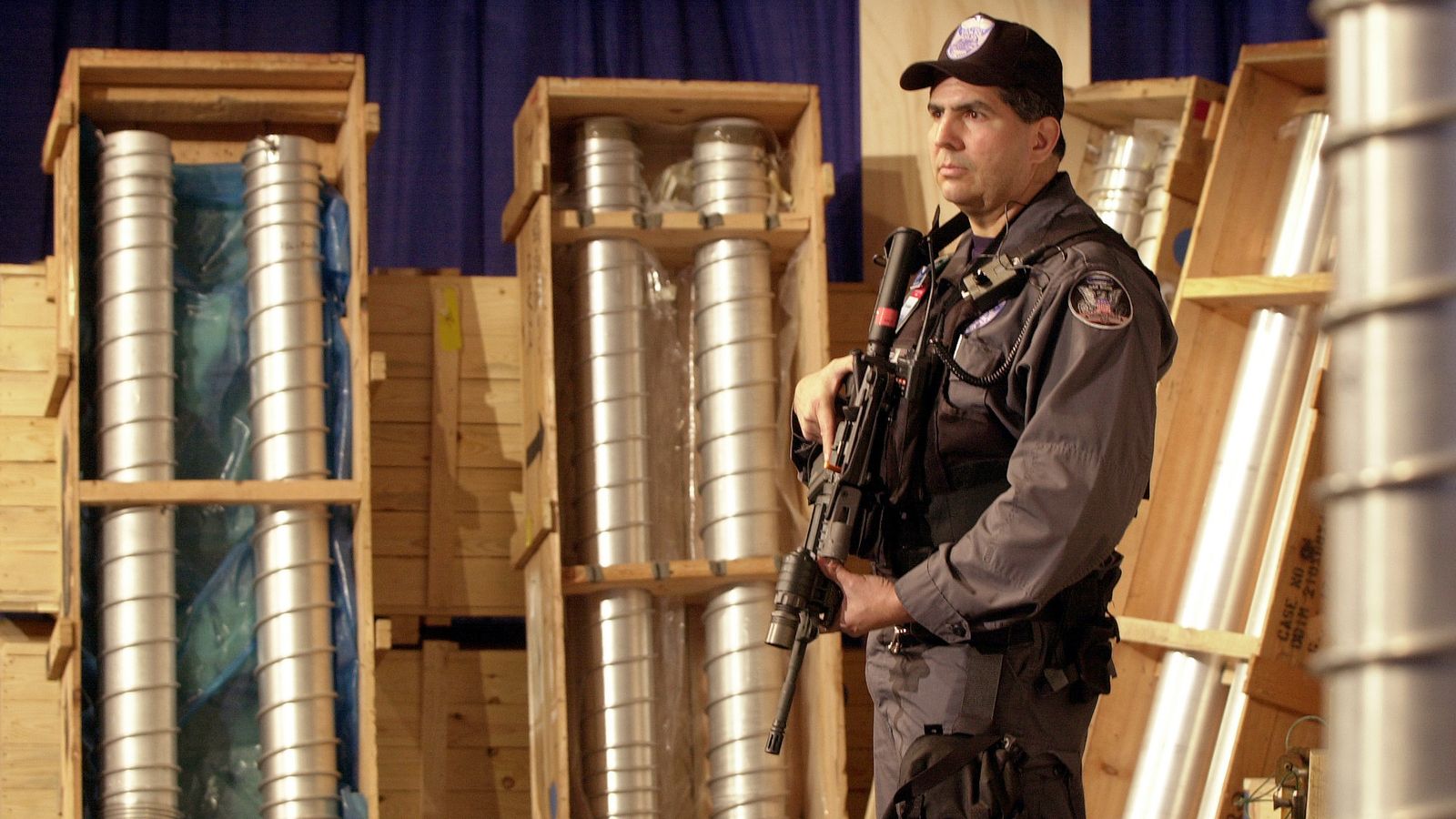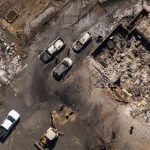Some 2.5 tonnes of natural uranium stored in a site in war-torn Libya has gone missing, the United Nations nuclear watchdog said, raising safety and proliferation concerns.
Although natural uranium can’t immediately be used for energy production or bomb fuel, groups with the technological means and resources can refine each tonne into 5.6kg of weapons-grade material.
Finding the missing metal is of extremely high importance for non-proliferation experts.
In a statement, the Vienna-based International Atomic Energy Agency said its director-general, Rafael Mariano Grossi, informed member states on Wednesday about the missing uranium.
The IAEA declined to offer more details on the missing uranium, which Reuters reported weighs “roughly 2.5 tons” in imperial measurements.
According to a confidential statement seen by Reuters, inspectors discovered “10 drums containing approximately 2.5 tons of natural uranium in the form of uranium ore concentrate were not present as previously declared at a location in the state of Libya.”
According to Reuters the IAEA told members that reaching the site required “complex logistics” as it falls outside of government control.
Libya: Son of Muammar Gaddafi announces candidacy for country’s presidential elections next month
Arab Spring: What is legacy of protests and uprisings as Tunisia’s president ousts PM in ‘coup’
At least 43 migrants drown in shipwreck off Tunisia after attempting to cross from Libya to Italy
There are a number of possible sites which could have been storing the uranium.
One such declared site is Sabha, 410 miles (660km) southeast of Libya’s capital, Tripoli, in the country’s lawless southern reaches of the Sahara Desert.
Sabha grew increasingly lawless following the 2011 Arab Spring uprising that led to the death of former Libyan leader Colonel Gaddafi, with UN reports suggesting that migrants are being sold as slaves in the city.
In recent years, it has largely been under the control of the self-styled Libyan National Army, headed by Khalifa Hifter.
Read more on nuclear energy:
Man in his 60s arrested over uranium found at Heathrow Airport
Couple who tried to sell US nuclear submarine secrets to foreign country are jailed
Under the dictatorship of Muammar Gaddafi, Libya stored thousands of barrels of so-called yellowcake uranium.
Gaddafi had once planned a uranium conversion facility as part of his decades long secret weapons program.
The facility was never built and Libya renounced its nuclear weapons programme in 2003.
Estimates put the Libyan stockpile under Colonel Gaddafi at some 1,000 tonnes of yellowcake uranium. The leader declared his nascent nuclear weapons program to the world in 2003 after the US-led invasion of Iraq.
Although inspectors removed the last of the enriched uranium from Libya in 2009 – with some components from the nuclear weapons programme being removed to the US – the yellowcake remained behind – with the UN estimating some 6,400 barrels of it were stored at Sabha in 2013.






















